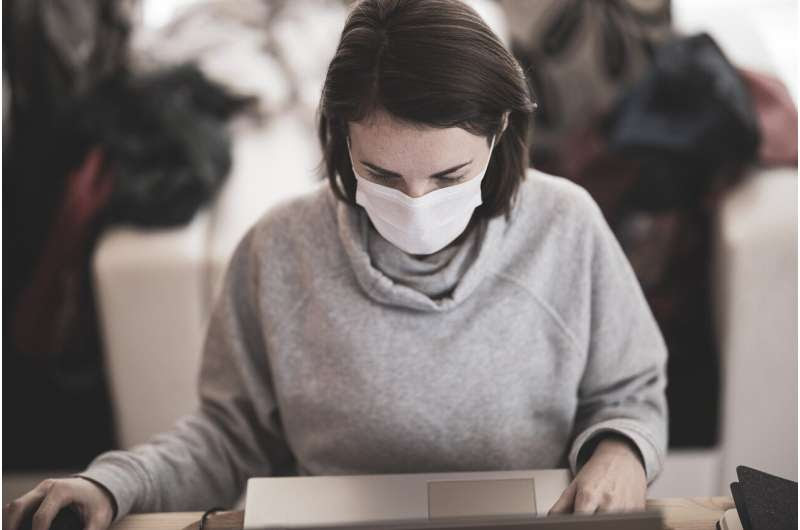by Boston University

Credit: Pixabay/CC0 Public Domain
When the Centers for Disease Control and Prevention (CDC) said in January it was shifting its recommended isolation period for people infected with COVID-19 from 10 days down to five days, followed by five days of mask-wearing, there were some concerns or questions about whether five days of isolation was too short. In the pandemic’s early days, the CDC had started out recommending 10 days of isolation and 14 days of quarantine, so five days seemed like a significant reduction.
Now, a new study from researchers at Boston University (BU) and Boston Medical Center offers some clues about whether five days is sufficient to ensure the broad safety of both those infected and the community at large. (BU’s COVID-19 policy mirrors the CDC guidelines). The short answer appears to be yes—with a few caveats.
Researchers tracked a cohort of BU students who’d tested positive for SARS-CoV-2 as part of the University’s broader testing program, asking them to self-perform daily swabbing and symptom screens for the next 10 days. The majority of those in the study who first tested positive were no longer positive after five days in isolation (in fact, most of them tested negative after three days of isolation). However, among 92 active participants in the study (all were fully vaccinated), 17 percent did still test positive after five days, which is why the second component to the CDC, and BU, guidelines—consistent mask-wearing for five additional days—remains vital.
The study’s conclusion says the majority of the infected cohort had converted from positive to negative by day six, and that “rapid antigen testing may provide reassurance of lack of infectiousness.” Masking for a full 10 days “is necessary to prevent transmission from the 17 percent of individuals who remain culture positive after isolation,” the study says.
The research is considered a preprint study, which means it is in the process of being peer-reviewed. But because of the urgency of any funded research involving the coronavirus, the researchers are making their findings public. The lead investigators on the study were Karen R. Jacobson, a School of Medicine associate professor of medicine in the Section of Infectious Diseases; John H. Connor, a MED associate professor of microbiology and a virologist at the National Emerging Infectious Diseases Laboratories; Catherine M. Klapperich, a College of Engineering professor of biomedical engineering and director of BU’s Precision Diagnostics Center and BU’s Clinical Testing Lab for COVID-19; and Tara Bouton, a MED assistant professor of medicine in the Section of Infectious Diseases.

Leave a Reply